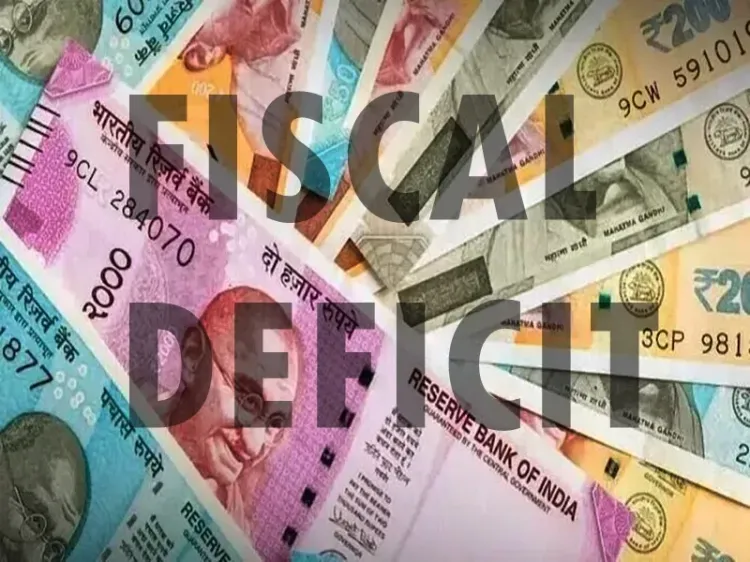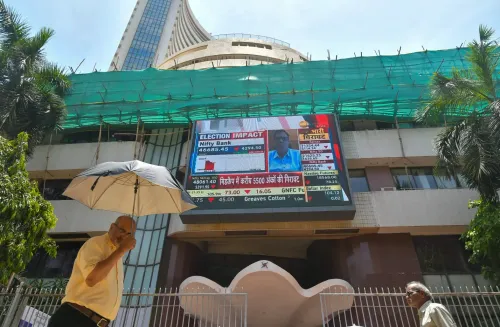Centre's Fiscal Deficit Reaches 46.5% of Annual Target After Seven Months

New Delhi, Nov 29 (NationPress) The Centre's fiscal deficit at the conclusion of the first seven months (April-October) of the current fiscal year stands at 46.5% of the overall annual target, as revealed by official data made public on Friday.
This indicates a robust macroeconomic financial condition, with the government adhering to its fiscal consolidation strategy.
The government aspires to reduce the fiscal deficit to 4.9% of gross domestic product (GDP) in this financial year, down from 5.6% in 2023-24.
In absolute terms, the fiscal deficit—the difference between government spending and revenue—amounted to Rs 7,50,824 crore during the April-October period this year, according to data from the Controller General of Accounts (CGA).
The revenue-expenditure data for the Union government over the first seven months of 2024-25 indicated that net tax revenue was approximately Rs 13 lakh crore, or 50.5% of the budget estimate for the current fiscal period.
The government aims to limit the fiscal deficit to Rs 16.13 lakh crore during the ongoing fiscal year.
India's net direct tax collections, which include corporate and personal income taxes, surged by an impressive 15.4% to Rs 12.1 lakh crore from April 1 to November 10 of this financial year, based on the latest data from the Central Board of Direct Taxes (CBDT).
The direct tax collection target was initially set at Rs 18.23 lakh crore in the Union Budget for 2023-24 and was later raised to Rs 19.45 lakh crore in the Revised Estimates (RE). Provisional Direct Tax collections (after refunds) have surpassed the Budget Estimate (BE) by 7.40% and the RE by 0.67%, according to the CBDT.
In addition, there has been significant growth in GST collections, driven by increased economic activity.
The increase in tax revenues provides the government with more resources to invest in large infrastructure projects aimed at boosting economic growth and implementing welfare programs for the underprivileged.
This also plays a vital role in maintaining the fiscal deficit at manageable levels and reinforcing the macroeconomic foundations of the economy.
A reduced fiscal deficit implies that the government has to borrow less, thereby allowing more liquidity in the banking system for major corporations to borrow and invest. This, in turn, cultivates a higher economic growth rate and generates more employment opportunities.
Furthermore, a low fiscal deficit helps regulate the inflation rate, contributing to economic stability.










